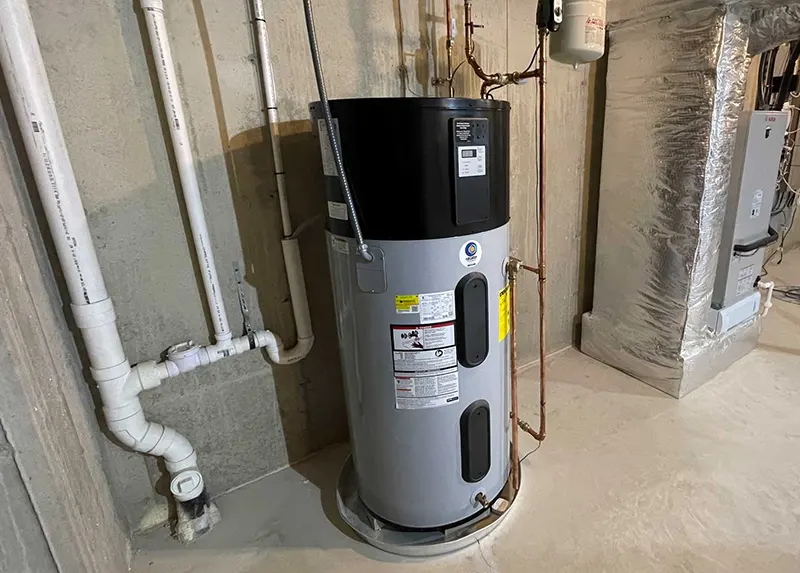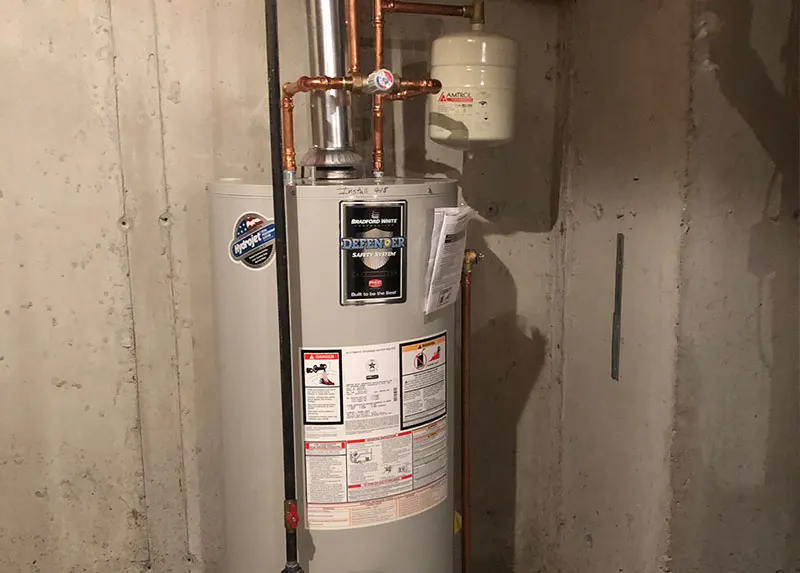Total Guide to Water HeaterInstallment and Replacement
Comprehending the details of water heating system installment and substitute is crucial for property owners seeking to guarantee performance and reliability in their warm water supply. From selecting the proper kind and dimension to executing a smooth setup procedure, several elements have to be taken into consideration to avoid usual risks. This overview will provide you with the necessary steps and insights to navigate the complexities of this home enhancement job, while additionally emphasizing crucial upkeep techniques that can prolong the life of your system. As you check out these elements, you might locate on your own reassessing your existing arrangement and recognizing areas for improvement.
Sorts Of Water Heating Units
When taking into consideration water heating system installation and replacement, it is vital to comprehend the various kinds of water heating units offered in the market. The most typical types consist of storage tank hot water heater, tankless hot water heater, warmth pump hot water heater, and solar hot water heater.
Tank water heating units are conventional systems that save a details volume of hot water, making them conveniently available when required. In contrast, tankless water heating systems offer hot water on need, eliminating the requirement for storage space.
Heatpump hot water heater make use of electrical power to transfer heat from the air or ground to warm water, offering substantial power savings however requiring more area and details installation problems. Last but not least, solar water heating systems harness solar power to heat water, supplying an environment-friendly choice with possible lasting price financial savings, although they usually need a back-up system for over cast days.
Understanding these alternatives guarantees informed decisions pertaining to installation and substitute, accommodating details requirements and choices.
Selecting the Right Size
Choosing the proper dimension for a hot water heater is essential to ensure optimum efficiency and effectiveness. A device that is as well tiny will battle to satisfy house needs, leading to irregular warm water schedule and boosted power intake. On the other hand, a large hot water heater can cause unneeded power waste and higher utility bills.
To figure out the best size, think about the family's optimal warm water use. This can be determined based upon the variety of owners and their regular warm water requirements. A household of four may require a water heater with an ability of 50 to 80 gallons, depending on the use patterns, such as synchronised showers and washing.
Furthermore, assess the healing price, which determines just how promptly a heater can renew warm water after it has been used. For tankless designs, concentrate on the circulation rate, determined in gallons per minute (GPM), to ensure it meets the house's simultaneous need.

Installation Process Summary

Following, the old system must be separated and removed, making sure to follow regional codes and regulations pertaining to disposal. When the old unit is out, the new water heater can be placed in place. This step entails linking the water system lines, guaranteeing that all fittings are leak-free and hop over to here protected.
After developing water connections, it's important to attach the power supply, whether electrical or gas, following the manufacturer's instructions carefully. Once all connections are made, the system should be full of water, and the power can be transformed back on. It's crucial to check for leaks and make certain the water heating unit is operating properly prior to completing the installment process.
Typical Installment Blunders

An additional regular error is disregarding to follow local codes and policies. Stopping working to stick to these standards can not only lead to safety risks but might additionally cause expensive penalties or the need for costly reinstallation. Furthermore, improper airing vent is an important problem. Poor ventilation can create dangerous gas accumulation, positioning serious health and wellness dangers.
Inaccurate plumbing connections are additionally a widespread mistake. Falling short to safeguard links or utilizing the wrong sort of installations can lead to leakages and water damage. Ignoring the importance of a correct drain pan can result in significant water damage if leakages do occur. Poor insulation of pipelines can lead to warm loss, reducing performance. By preventing these typical setup mistakes, home owners can ensure their hot water heater runs securely and efficiently, taking full advantage of performance and durability.
Upkeep Tips for Long Life
Proper maintenance of a water heating unit is crucial for its longevity and optimum efficiency. Normal inspections and maintenance can prevent pricey fixings and prolong the home appliance's lifespan. Begin by inspecting the temperature level setup; it should normally be set in between 120 ° F and 140 ° F for optimal energy performance and safety and security.
Every 6 months, flush the container to get rid of sediment build-up, which can harm home heating efficiency and trigger rust. To do this, switch off the heating unit, attach a tube to the drainpipe valve, and allow the water run till it is clear.
When they are corroded,Anode poles need to be checked every year and changed. These poles assist protect against storage tank rust by bring in harsh aspects in the water.
Additionally, inspect the pressure safety valve on a regular basis to guarantee it is operating properly. This shutoff is crucial for protecting against too much stress accumulation within the container.
Finally, take into consideration setting up a specialist upkeep check every couple of years for extensive examinations and maintenance. By adhering to these upkeep pointers, homeowners can considerably enhance the performance, safety and security, and life-span of their water heating units, making certain trustworthy warm water for several years ahead.
Verdict
Finally, proper setup and maintenance of water find more information heaters are crucial for ensuring efficiency and durability (pipe repair). Choosing the ideal kind and size, adhering to installment guidelines, and staying clear of typical mistakes considerably add to ideal efficiency. Normal upkeep checks and expert maintenance assistance endure functionality and protect against costly fixings. Check Out Your URL By comprehending these vital aspects, property owners can attain a reliable warm water supply while decreasing potential concerns connected to water heating system operation.
Comprehending the complexities of water heating system setup and replacement is essential for home owners looking for to make certain efficiency and reliability in their hot water supply.Storage tank water heaters are typical systems that save a certain volume of warm water, making them readily offered when needed. In comparison, tankless water heating systems provide warm water on need, getting rid of the demand for storage space. Choosing a water heating unit that is either too little or too big can lead to ineffectiveness, resulting in insufficient hot water supply or excessive power usage.
By understanding these vital aspects, house owners can accomplish a dependable warm water supply while decreasing prospective problems connected to water heating system procedure. gas leak repair.